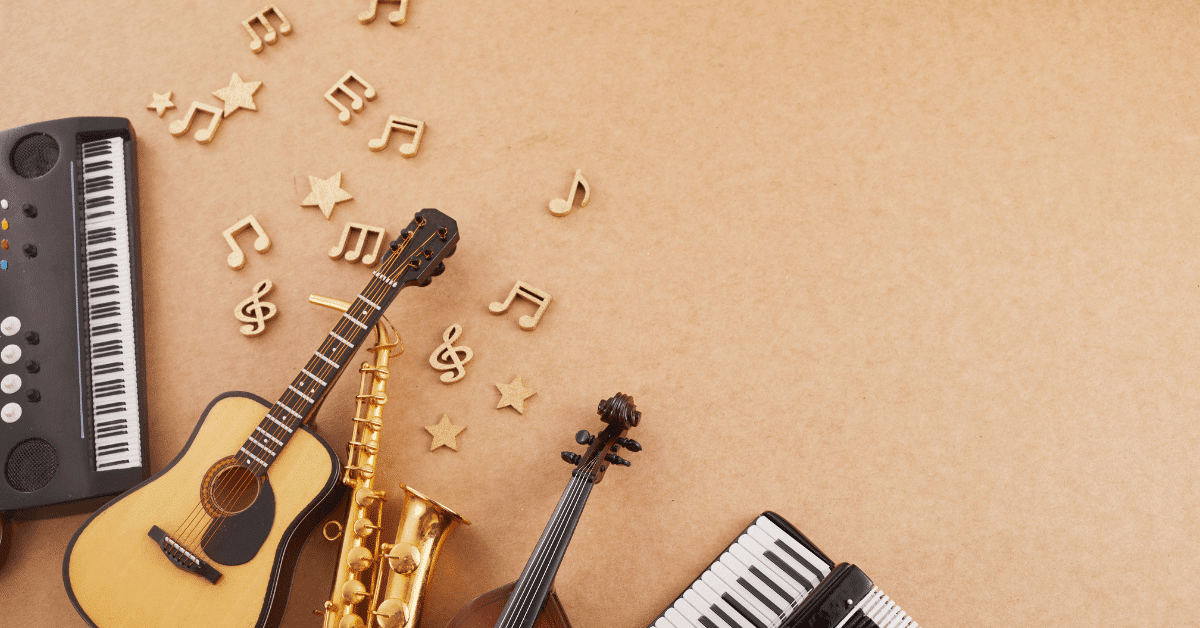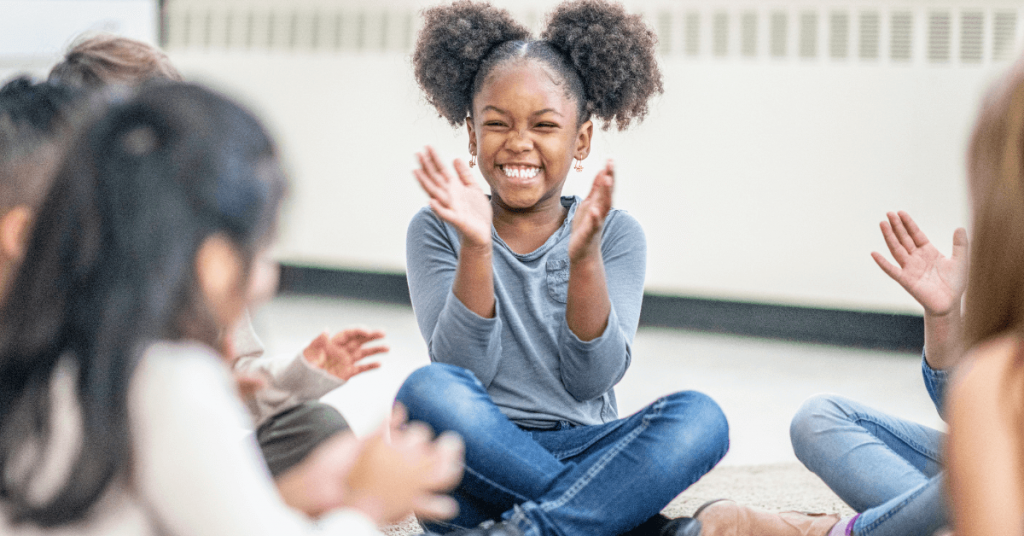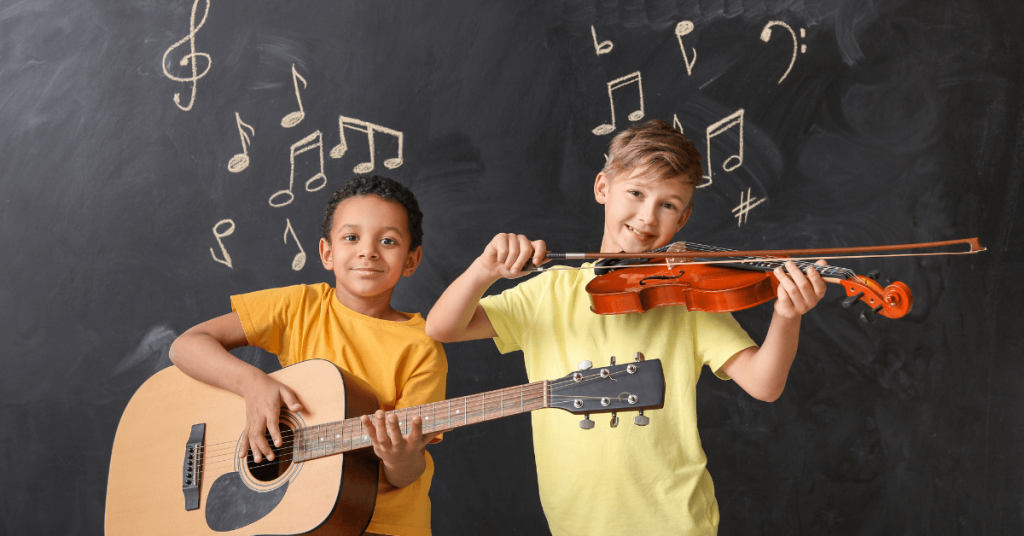No products in the basket.
Harmonising Success: The Role of Music in Primary Schools

Introduction
Music is a universal language that has the power to connect people, express emotions, and inspire creativity.
It is also a powerful tool for learning and development. Research has shown that music education can enhance academic achievement, cognitive skills, and creativity in primary school children1. It can also foster social and emotional development, self-expression, and cultural awareness.
Music education is an important part of the national curriculum in England, but it is often underfunded and marginalised. This is a missed opportunity, as music has the potential to make a significant contribution to the overall success of primary schools.
Music education plays a vital role in the success of primary schools, enhancing academic achievement, cognitive skills, and creativity, fostering social and emotional development, self-expression, and cultural awareness, and addressing the challenges and opportunities of diversity and inclusion.

How music education can enhance academic achievement, cognitive skills, and creativity
Research has shown that music education can have a positive impact on academic achievement in several ways. For example, music education can improve students’ reading and math skills, as well as their overall cognitive functioning.
Music education can also help to develop students’ creativity and problem-solving skills. For example, a study by the University of British Columbia2 found that children who received music lessons for two years performed better on standardised tests in reading and math than children who did not receive music lessons.
The study also found that the children who received music lessons had better auditory processing skills and memory skills.
How can music education foster social and emotional development, self-expression, and cultural awareness?
Music education can also help to foster students’ social and emotional development. Music can provide a safe and supportive environment for students to express themselves and connect with others. Music education can also help students to develop their self-esteem and confidence.
In addition, music education can help students to learn about different cultures and traditions. Music is a powerful tool for promoting understanding and tolerance.
For example, a study by the University of Oxford3 found that children who participated in a music education program were more likely to have positive attitudes towards people from different cultures.
The study also found that the children who participated in the music education program were more likely to be tolerant of different viewpoints.
How music education can address the challenges and opportunities of diversity and inclusion in primary schools
Music education can also help to address the challenges and opportunities of diversity and inclusion in primary schools.
Music is a universal language that can bring people together from different backgrounds. Music education can also help students to learn about different cultures and traditions.
For example, the Bristol-based education support provider, Youth Education Service, offers a program called “Music for All” which is designed to provide music education to children from all backgrounds, including those with disabilities.
The program has been shown to be effective in promoting social inclusion and improving academic achievement.

Conclusion
Music education is an essential part of a well-rounded education. It can help to enhance academic achievement, cognitive skills, and creativity.
In addition, Music can foster social and emotional development, self-expression, and cultural awareness, and address the challenges and opportunities of diversity and inclusion in primary schools.
Recommendations and implications for practice, policy, or further research
Schools should be given more resources to support music education. This could include funding for music lessons, music equipment, and in-school training for teachers.
The government should review the national curriculum to ensure that it gives music education the importance it deserves.
Further research is needed to better understand the impact of music education on children’s development and learning.
This research should focus on the long-term effects of music education, as well as the impact of different types of music education programs.
Music is a gift that we should all could enjoy. Music education can help children to reach their full potential and become well-rounded individuals. We must do more to support music education in primary schools, so that all children can benefit from its power.
Novus Music – Our offer for your school
At NOVUS Music, we believe in the power of music to inspire self-expression and exploration in children.
Our music program blends the latest primary curriculum standards with cutting-edge online tools and the expertise of our music leaders to create dynamic and engaging music sessions for primary school-aged children.
We work closely with your school leadership team and music lead to ensure our sessions fit seamlessly into your schedule, whether as PPA sessions, enrichment workshops, or after-school
clubs.
With NOVUS Music, your children will have the opportunity to tap into their creativity, build confidence, and experience the joy of music.
Novus Music Workshops
We offer a range of different workshops suited around your schools needs and budgets, for example:
“Sing and Play” Workshop: This workshop will encourage children and staff to sing and play musical instruments together, fostering a sense of community and collaboration.
“Musical Theatre” Workshop: Exploring the world of musical theatre, combining singing, acting, and
dance to tell a story.
“Music and Emotions” Workshop: Encouraging children and staff to explore their emotions.
through music.
To find out more about our music program, get in touch now.
Sources:
1 – https://angelesacademyofmusic.com/boost-your-childrens-academic-achievement-through-music-education/
2 – https://www.seattletimes.com/opinion/music-education-is-key-contributor-to-academic-achievement/
